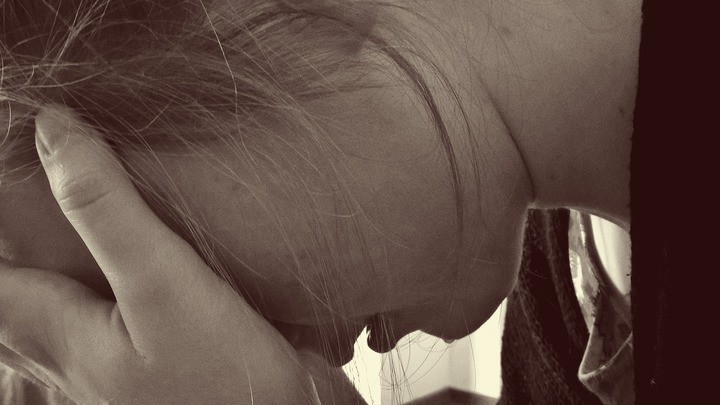R U OK Day? — Its Time to Talk About Adoptees and Attempted Suicide
Today is national R U OK? Day. This is a meritorious endeavour and encourages us to meaningfully connect with others and support those who are struggling in the context of suicide prevention. As an adoptee activist, I am still waiting for adoptee wellbeing to be centered in the nation’s consciousness. I am waiting for someone to make a concerted effort to check in and ask us if we are Ok?
I engage with many local and international adoptees, and it had come to my attention last year that two adoptees, known to people in my network, had died by suicide. I will not comment further on them directly but rather the broader topic of attempted suicide. The consistent message that I am seeing by other adoptee activists is this: “We need to raise awareness about suicide and suicide risk among adoptees!”
As an activist, I am increasingly frustrated that the mainstream discourse on adoption glosses over the issues that some adoptees face. It seems that adoptee mental health (refer to page 121) and suicide risk is still considered a taboo subject. Alongside this, there are some adoptees who get very angry if they think they are being pathologized. I personally have experienced this online and it is disturbing that some adoptees (or adoptive parents) would attack another adoptee for speaking about this issue. This must stop!
Let me set the record straight: if you are an adoptee who does not struggle with suicidal thoughts, then this article is not written for you. Rather, this article is written for those adoptees who have struggled in silence, felt shame or who feel disenfranchised and marginalized. I want these adoptees to know that they are not anomalies! [1]
Research exists that indicates adoptees are at an increased risk of suicide. [2] One study reported that, “Adopted offspring were nearly four times more likely to attempt suicide than non-adopted offspring.” [3] In addition, Mirah Rubin, author, activist and commentator, has also published an article on adoptee suicide in 2016, which provides extensive links to research. [4] Further, adoptee Thomas Graham has also published an extensive article with recommendations on this subject and it is worth reading. [5]
Although I have not tested the robustness of any of the aforementioned studies, they are published by credible sources. Further, I cannot begin to dismantle the complex reasons that sit behind these statistics. However, anecdotally, I have spoken to adoptees who have identified as having suicidal thoughts.
The point I want to make is that we need to be talking about this more openly and garner support for more research. This is so important because, adoption is always sold as a “win-win” scenario, and most people would not know that some adoptees struggle. These issues are real, and it’s time they were discussed openly. Sweeping adoptee suicide risk or mental illness under the carpet or putting our collective heads in the sand will not help anyone, but rather it will further disenfranchise vulnerable adoptees.
The main message I want to convey is this: to my fellow adoptee if you are not okay please know that you are not an anomaly ― other adoptees have struggled too. Please reach out for help and know that you deserve to be treated with dignity and respect. If you know an adoptee who is at risk, please do not be afraid to likewise reach out and help them to access appropriate support services.
I understand that due to the stigma some people are frightened to ask for help or to approach a friend or relative who might be at risk. However, the organization beyondblue states that we should not “be afraid to ask direct questions about suicide. You can’t ‘put the idea of suicide’ in someone’s head by talking about it. Asking direct questions can also help you to determine if they’re in immediate danger and in need of assistance.” [5]
Today is R U OK? Day.
Australia, its time that we made a commitment to engaging adoptees. We need to make a concerted effort to operationalize the collection of nationally consistent data to examine the risk of attempted (or completed) suicide (and other issues across the health domains) amongst adoptees and to inform future practice decisions.
_____________________________________________
Additional Support Information
Some Support Services in Australia
Australian Institute of Family Studies
Adoption Support Services Queensland.
Benevolent Society — ACT and NSW
Relationships Australia — South Australia
Adoption Services(Government Agency) — Tasmania
Department of Health and Community Services —Northern Territory
Suicide Call Back Service 1300 659 467
Beyondblue Support Service 1300 22 4636
Emergency Services 000
Some Support Services in the United States of America
Emergency Services 911
National Suicide Prevention Lifeline
We can all help prevent suicide. The Lifeline provides 24/7, free and confidential support for people in distress, prevention and crisis resources for you or your loved ones, and best practices for professionals.
1–800–273–8255
Some Support Services in the United Kingdom
Other International Links
https://www.iasp.info/resources/Crisis_Centres/
http://www.suicide.org/international-suicide-hotlines.html
References:
[1] http://www.attachmentandtraumaspecialists.com/articles/adoption_and_suicide_risk
[2] http://pediatrics.aappublications.org/content/108/2/e30.short
[3] Adopted offspring were nearly 4 times more likely to attempt suicide than nonadopted offspring, according to a study published online September 9 in the Pediatrics.
[4] http://www.huffingtonpost.com/mirah-riben/toward-preventing-adoptio_b_8127882.html
Originally published at medium.com


